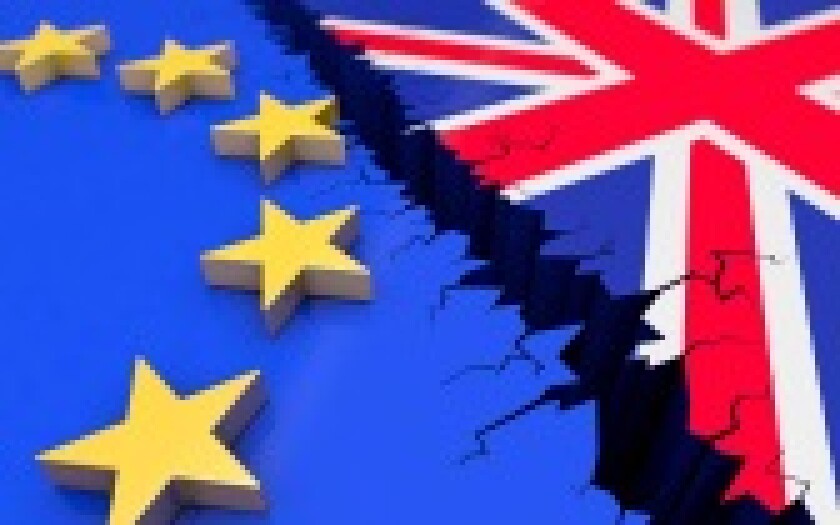
In the week or so since the UK's Brexit vote, much has been written in IP circles about the effect on various IP rights and litigation of those rights. From the litigation perspective, most focus has been on the UPC, and rightly so. Various opinions have been provided and comments made by leading lights in the patent world around Europe. These range from those who would like the UK "out" as soon as possible so that the UPC can proceed with the remaining participating states, through to those urging swift ratification by the UK so that the project can get started. And if the project does get started, there are differing views as to whether the UK could remain part of the UPC post-Brexit and, if so, how that might be achieved.
The balance of commentaries seems to be in favour of the UK remaining part of the UPC. Indeed, lobbying efforts are already gathering momentum towards this aim. While of course the UPC could proceed without us Brits, I hope it is not seen as arrogant to suggest that the project will be worse off – if only in the sense of benefiting from views from the common law perspective – if the UK patent litigation profession and judiciary do not directly participate.
The joy of SEPs
"Huawei v ZTE has helped to move on negotiations in several circumstances where a prospective licensee was otherwise seeking to draw out negotiations hoping that the licensor would run out of steam (and/or funds)."
As dust from the shock of the Brexit advisory referendum starts to settle, patent litigators turn their minds to particular aspects of patent litigation. There has probably been no area more affected by EU law in recent years than the litigation and licensing standards-essential patents (SEPs).
Over an approximate 10-year period a range of different practices around Europe had emerged regarding the litigation of SEPs and what the courts expected by way of negotiation practices, before the CJEU in Huawei v ZTE in July 2015 got to grips with this area – or at least parts of it.
In very brief terms, the CJEU, in Huawei v ZTE, set out a framework for the negotiation of FRAND licences for SEPs, making clear – at least at a high level – the actions required both on the part of the SEP holder and its prospective licensee.
In summary, both sides are required to "get on with it", by exchanging FRAND proposals in a timely fashion. Importantly, a licensee that rejects a FRAND proposal from the patent owner is required to make a counter-proposal and provide security for its use of the patent technology pending conclusion of a licence agreement.
While the Huawei v ZTE decision does not mandate this conduct, it does affect whether an anti-trust defence (under Article 102 TFEU) will be available depending on whether the parties have followed, at least in broad terms, the framework.
Since the Huawei v ZTE decision, the broad framework has been considered in a number of cases, with decisions in Germany in particular shedding light on how the guidance is to be applied in practice. From my perspective, Huawei v ZTE has helped to move on negotiations in several circumstances where a prospective licensee was otherwise seeking to draw out negotiations hoping that the licensor would run out of steam (and/or funds).
SEP litigation post-Brexit
"In order to avoid adverse consequences parties will need to abide by the Huawei v ZTEframework whether or not that decision remains binding on the English courts as a matter of law."
If the UK leaves the EU what will happen to the litigation and licensing of SEPs? In terms of the remaining EU member states, there will be no change. That is not to suggest that there will be no developments – they will continue, and we will most likely still be looking to Germany for the majority of case law developments.
But what about the UK? Will the Huawei v ZTE framework still apply as a matter of law? If not, will it still be followed, in whole or in part?
Standing back a little, we should bear in mind that Huawei v ZTE was all about the availability of an anti-trust defence. It is not about the availability of injunctions per se. But the anti-trust defence in question is an Article 102 defence – not a national competition law-based defence.
So can SEP holders look forward to a day when the Huawei v ZTE guidance will cease to apply to their negotiations with prospective licensees? Can they "get away with" providing inadequate or insufficient information about the patents in question and the royalty being sought, by routing their negotiations via the UK?
As for prospective licensees, can they return to their practices (some would say stick with their practices) of introducing maximum delay to negotiations, paying nothing for use of patented technology and offering no security in the meantime?
From the UK perspective (and here we are talking about the English perspective, as this is where all SEP litigation to date has taken place in the UK, Scotland and Northern Ireland being separate jurisdictions) it would seem clear that the answer is "no". In order to avoid adverse consequences parties will need to abide by the Huawei v ZTE framework whether or not that decision remains binding on the English courts as a matter of law.
Those consequences may not be an Article 102 abuse if the UK is outside the EU, but rest assured that the English courts will ensure that there are consequences nevertheless. These could be in costs, they could be the availability of an injunction, there could be national competition issues.
The long arm of Article 102
"We can expect the English patents judges – who have invested so much time in getting to know their continental European counterparts – to continue to try to make decisions that are consistent with wider European practice."
Yet even if the UK courts were ultimately not required to follow EU law, we can expect the Commission to consider enforcement action if parties sought to use the UK as a means by which to circumvent Huawei v ZTE, particularly if licensing negotiations related to EEA member states.
There is a sound basis for this expectation: In Samsung, the Commission made clear that seeking SEP-based injunctive relief outside of the EEA remained subject to the application of Article 102 TFEU where this had an appreciable anti-competitive effect in the internal market. Case law in relation to the application of Article 102 TFEU indicates that this "effect" threshold is low.
Further, in Motorola, the Commission held that the fact that national courts in Germany had allowed SEP-based injunctive relief to be sought, and granted the same, did not absolve Motorola of liability under Article 102 TFEU: "Motorola had full discretion throughout the German proceedings to decide whether to seek an injunction in the first place and whether to enforce the injunction once it was granted."
Therefore, while the UK courts might ultimately not be required to follow EU law, patent holders are likely to find themselves required to do so, by virtue of the "long arm" of Article 102 TFEU.
Further, on the domestic front, we can expect the English patents judges – who have invested so much time in getting to know their continental European counterparts – to continue to try to make decisions that are consistent with wider European practice.
Decisions will continue to be based on our national patent law, which is derived from the EPC, but it would also be surprising if they were to depart materially from the thinking of Huawei v ZTE. After all, it is a decision that runs through with common sense based on real-life licensing practices, and common sense is behind so many of the English judges' decisions where SEPs are concerned.
David Barron is a partner and head of technology patent litigation at Gowling WLG in the UK











